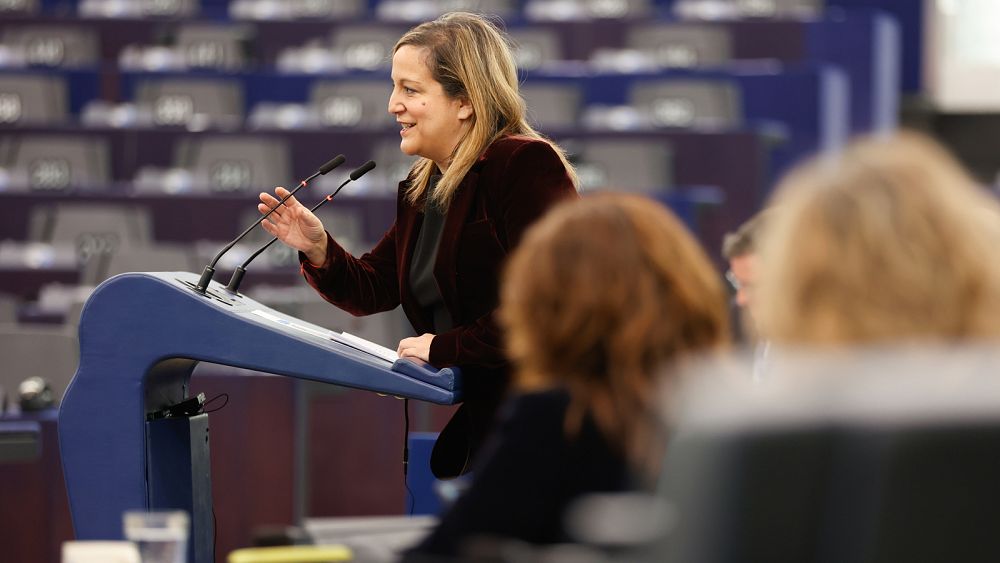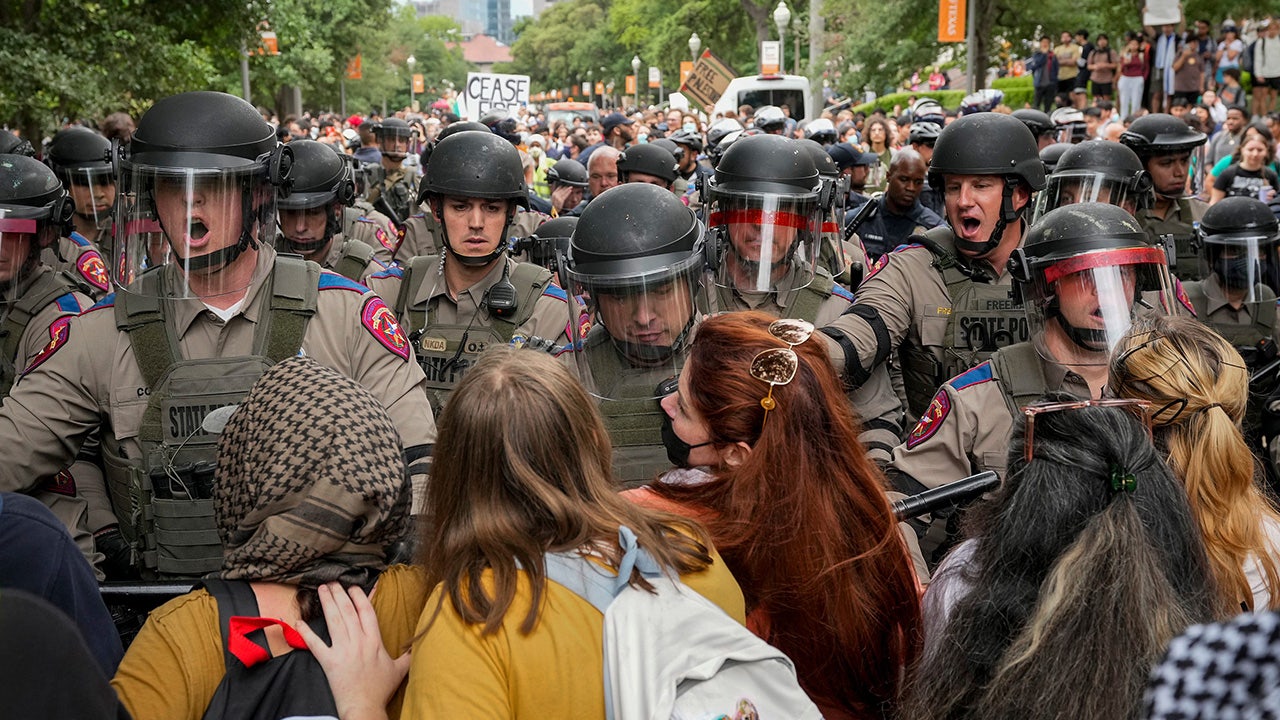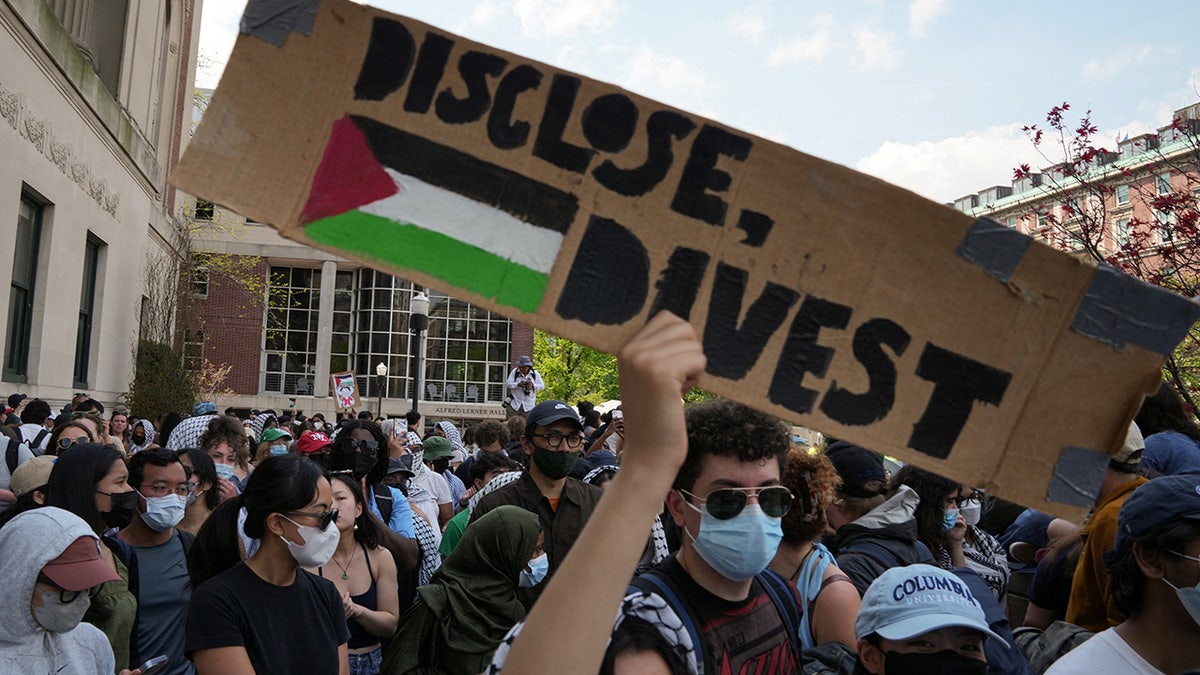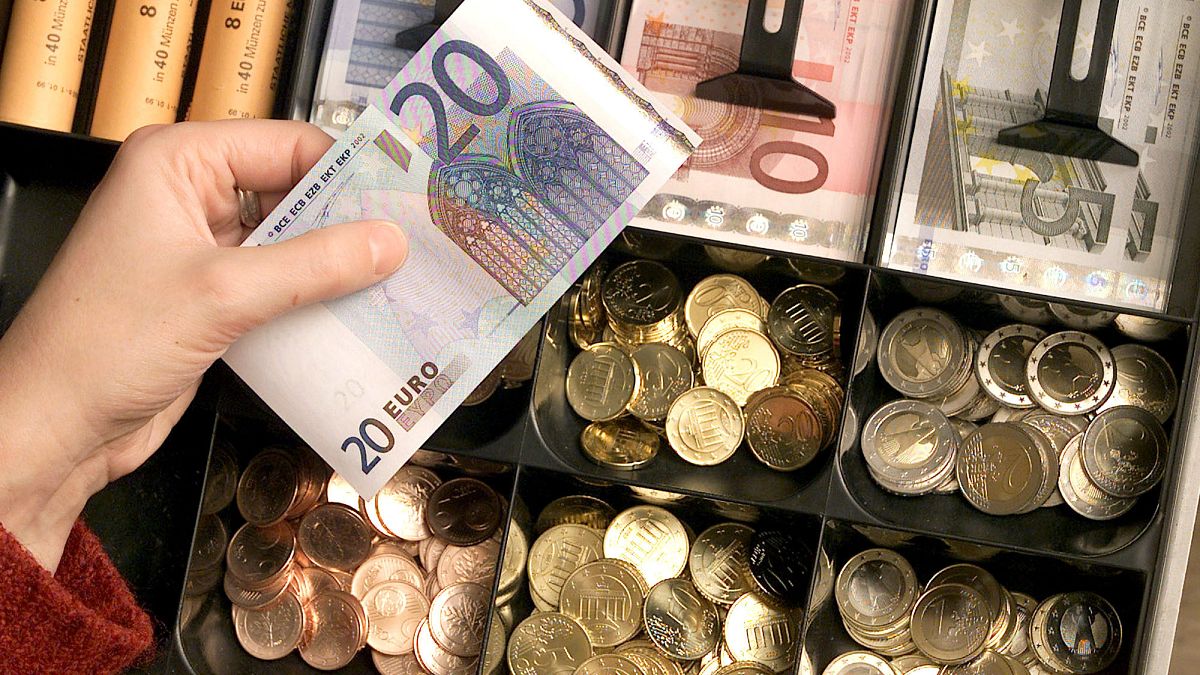World
Spain’s amnesty law sparks heated debate in European Parliament

Emotions ran high in the Strasbourg hemicycle on Wednesday as EU lawmakers clashed over Spain’s controversial amnesty law, part of a political deal with Catalan separatists to make Pedro Sánchez prime minister.
The debate, convened by the right-leaning European People Party (EPP) saw right-wing lawmakers accuse allies of Sánchez, a socialist, of sacrificing the rule of law for political gains while socialist MEPs defended the amnesty bill as a key step in Spain’s reconciliation with Catalan separatists.
Earlier this month, Catalan separatist party Junts per Catalunya (JxCat) – led by the exiled Carles Puigdemont, also a member of the European Parliament – offered seven of its votes in the Spanish parliament to back a Sánchez-led government in exchange for a controversial amnesty for Catalan politicians and activists who participated in a failed attempt at secession from Spain in 2017.
The law has sparked outrage among the Spanish opposition, who accuse Sánchez of cosying up to separatists and flouting the rule of law. Fierce protests have taken place in Spain’s capital Madrid for the past twenty days.
Speaking to Euronews ahead of the debate, EPP president Manfred Weber said Sánchez had put his “personal egoism” in front of national interests by signing a “legally unthinkable” text.
Weber claimed people in Spain are “no longer equal before the law,” and accused Sánchez of allowing “corruption, violence and terrorism” to go unpunished.
“The socialists and the left have lost all credibility to defend the rule of law in Europe,” he added.
Close Sánchez ally Iratxe García, president of the Socialists and Democrats in the European Parliament, accused Weber of lying by claiming crimes of terrorism would be absolved under the plans, citing Article 2c of the draft amnesty bill which explicitly says acts of terrorism would be excluded from the law’s application.
The law could however exonerate an unconfirmed number of crimes including embezzlement, disobedience and maladministration.
“Mr Weber, lying is not ok, and you have lied,” she said to the jeers of the conservatives. “There is no greater attack on the rule of law than your alliance with the extreme right.”
“The main problem of the Partido Popular (PP) and Vox,” she went on, referring to the main political forces on the Spanish right, “is that they are incapable of understanding Spain. They cannot understand that the greatness of Spain lies in its diversity and plurality.”
Sources from Spain’s socialist party (PSOE) told Euronews that the right had “failed in its attempt to get the European Commission to oppose the proposed amnesty law.”
Also in Strasbourg on Wednesday was the leader of Spanish far-right party Vox, Santiago Abascal, who has drawn harsh criticism over recent days for encouraging protesters to disobey police orders during demonstrations.
“We hope the Spanish parliament will be asked to provide explanations and that the Commission will act with the same diligence as in the case of Poland and Hungary,” he told reporters.
All eyes on the Commission
EU justice commissioner Didier Reynders, whose team is currently scrutinising the draft amnesty law to ensure compliance with the bloc’s rule of law rulebook, also intervened during the debate, but refrained from disclosing details of his team’s preliminary assessment.
He reiterated the Commission had received complaints “by a large number of citizens and stakeholders” expressing concerns over whether the law and the “special committees of the parliament” it foresees comply with the EU’s fundamental values.
“We will carry out our analysis carefully, independently, and objectively to determine compliance with EU law,” Reynders affirmed.
Sánchez’s newly-appointed justice minister Félix Bolaños is expected to meet Reynders and values and transparency commissioner Věra Jourová in Brussels next week to provide clarifications on the amnesty bill, after Reynders addressed a letter to Spanish ministers earlier this month requesting more information.
The bloc can sanction member states for rule of law breaches under Article 7 of the EU treaties and is currently withholding funds from both Hungary and Poland for democratic backsliding.
PP’s institutional vice-secretary Esteban González Pons accused Sánchez of endangering European funds earlier on Wednesday, including Spain’s staggering €163 billion allocation of the bloc’s flagship ‘Next Generation’ post-Covid recovery funds.
But the Commission has so far refrained from disclosing its assessment of the proposed law, and no concerns regarding the erosion of the rule of law have been raised.
Lawfare under scrutiny
One of the most controversial aspects of the political deal struck between JxCat and the socialists is the reference to the concept of ‘lawfare’, or the strategic use of the law as an instrument to target political opponents.
JxCat’s leader Carles Puigdemont wants Spain to introduce parliamentary commissions to investigate whether its courts had been unnecessarily heavy-handed in sentences made against the separatists in order to persecute pro-independence figures.
Legal experts have voiced concerns that this could significantly undermine the independence of the judiciary and the separation of powers, as enshrined in Spain’s constitution.
But although no reference to lawfare is made in the text of the amnesty law, Reynders told the parliament that his team is also investigating the proposal to establish “parliamentary commissions.”
He also called on Spain to implement the urgent judicial reforms made recommended as part of the Commission’s annual rule of law report published in July.

World
Dan Schneider Files Defamation Suit Against Quiet on Set Producers, Says Docuseries Is a ‘Hit Job’

ad
World
University of Tehran professor says protesters at US colleges will support Iran in American conflict

Anti-Israel protests erupt at Fordham University
Fox News correspondent Alexis McAdams reports on anti-Israel protests at Fordham University and the aftermath of NYPD officers clearing out protesters from Columbia University’s Hamilton Hall on ‘Special Report.’
A University of Tehran professor said in an interview that Iran likes seeing protests on U.S. college campuses, adding those are their supporters if there is ever a conflict between the two countries.
Professor Foad Izadi, who, according to the University of Southern California Center on Public Diplomacy, earned his master’s degree from the University of Houston, was seen in a video being interviewed about the protests in the U.S.
“Sooner or later, this kind of support for the Zionist regime by the American regime will diminish. It might not stop completely, but its diminishing is important,” he said. “This is why the demonstrations [on U.S. campuses] are important.”
Izadi spoke as a member of the Islamic Republic, and oftentimes said, “we,” referring to him and the republic.
TRUMP SAYS 4 WORDS ABOUT ANTI-ISRAEL PROTESTS ON COLLEGE CAMPUSES AS ARRESTS SKYROCKET
State troopers in riot gear try to beak up an anti-Israel protest at the University of Texas on Wednesday, April 24, 2024. (Jay Janner/American-Statesman)
“We are watching the demonstrations and like what we see, but it should not end with this,” Izadi said. “If not for the Islamic Republic, the case of the Palestinian idea would have been closed years ago. The idea of resistance belongs to Iran, but on the operational level, when it comes to recruiting connections and building networks, the [Iranian] state has not been involved in a sufficient level.
“These (American students) are our people,” he continued. “If tensions between America and Iran rise tomorrow or the day after, these are the people who will have to take to the streets to support Iran.”
Izadi said there are Hezbollah-style groups in the U.S. that are much larger than those in Lebanon.
VIDEO SHOWS ANTI-ISRAEL PROTESTERS BLOCK JEWISH STUDENT FROM GETTING TO CLASS; UCLA RESPONDS
“America is the Great Satan and our main enemy, but we have hope in these areas,” he said.
Iran expert and Foreign Desk Editor-in-Chief Lisa Daftari provided insight on Izadi’s comments.
“Quite rich to see the same regime that is fixated on torturing, raping, blinding, executing its own college students, is applauding the ignorant college students on American campuses,” she said. “It speaks to their focus on growing their influence outside of Iran.”
UCL ANTI-ISRAEL PROTESTERS ASK SUPPORTERS FOR VEGAN AND GLUTEN-FREE FOOD, ZIP TIES, SHIELDS AND EPIPENS

A protester holds a sign during a march on Columbia University campus in support of a protest encampment supporting Palestinians in New York City, April 29, 2024. (REUTERS/David Dee Delgado)
Daftari explained that Iran has been beefing up terror proxies in the region and paying their way into American universities.
But at the same time, she said, the Iranian people have suffered under the rule of their “barbaric” leaders.
After watching the comments, Daftari also said it was interesting to hear Izadi say they have more Hezbollah followers in the U.S. than in Lebanon.
“Regardless of when these pro-Hamas protests quiet down here in the U.S., it’s apparent the regime has its sights set on manipulating this momentum to launch more attacks here in the West,” she said. “The question then remains will they focus on a physical attack or just the information war, or both?”
World
France's May Day march turns into political arena ahead of EU election

Many left-wing contenders didn’t miss the opportunity to attend the traditional May Day protest in Paris, while the far-right politician Jordan Bardella, currently leading the polls, announced the rest of his candidate list in southwestern France.
The usual chants for higher salaries and equal pay echoed across the streets of Paris this Wednesday during the traditional May Day labour rights march.
Ten of thousands of protestors took to the streets of the French capital against a backdrop of new demands such as peace in Gaza and against the upcoming Paris Olympic Games.
But with less than six weeks left before the European elections on 9 June, the event turned into a highly political one.
Many left-wing candidates didn’t miss the opportunity to present their campaign, all vying for attention.
Representing the Communist party for the EU elections, Léon Deffontaine, the 28-year-old candidate is focusing his campaign on energy bills — a topic that catalysed numerous protests in France and Europe since Russia’s full-scale invasion of Ukraine.
“The first measure I want to put in place is to take France out of the European electricity market to reduce energy bills. Today, we’re paying far more than the price we pay to produce electricity,” he told Euronews.
Others emphasised the importance of protesting the rise of the far-right, currently leading the polls, represented by Jordan Bardella of the Rassemblement National party (RN).
“May 1st is also an opportunity to remember that we must always fight against these anti-democratic, anti-republican parties that unfortunately swarm our country,” said Marie Toussaint, leader of the Green Party for the 9 June elections.
According to a poll by IPSOS ordered by Euronews, Macron’s centrist alliance Renaissance is lagging by 15 points behind Bardella’s party.
Meanwhile, in the southwestern city of Perpignan, Jordan Bardella gathered more than 2,000 people to announce his party’s first 35 candidates for the elections.
These include candidates such as Fabrice Leggeri, ex-boss of Frontex, the European Border and Coast Guard Agency.
End of April, two NGOs filed a civil complaint against Leggeri accusing him of being complicit in crimes against humanity for enabling ‘pushback’ of boats full of illegal migrants between 2015 and 2022.
Bardella’s move was highly criticised by left-wing parties, claiming the far-right politician was taking away the attention from worker’s issues.
“Taking advantage of May 1st to launch a campaign shows that he couldn’t care less about French workers,” reacted Léon Deffontaines, the Communist candidate.
In Saint-Etienne (near Lyon), the head of the socialist party, Raphaël Glucksmann, was prevented from joining the march.
Multiple protesters threw paint and eggs at the EU election candidate, currently third in the polls after the far-right and Marcon’s centrist alliance.
In total, about 121,000 people marched across France according to the Ministry of the Interior, while the main labour union CGT claimed “more than 210,000” participated in the marches in the country.
-

 Education1 week ago
Education1 week agoVideo: Dozens of Yale Students Arrested as Campus Protests Spread
-

 News1 week ago
News1 week agoLarry Webb’s deathbed confession solves 2000 cold case murder of Susan and Natasha Carter, 10, whose remains were found hours after he died
-

 World6 days ago
World6 days agoHaiti Prime Minister Ariel Henry resigns, transitional council takes power
-

 Politics1 week ago
Politics1 week agoFetterman hammers 'a–hole' anti-Israel protesters, slams own party for response to Iranian attack: 'Crazy'
-

 World1 week ago
World1 week agoPeriod poverty still a problem within the EU despite tax breaks
-

 World1 week ago
World1 week agoUS secretly sent long-range ATACMS weapons to Ukraine
-

 News6 days ago
News6 days agoFirst cargo ship passes through new channel since Baltimore bridge collapse
-

 World1 week ago
World1 week agoTurkey’s Erdogan meets Iraq PM for talks on water, security and trade



















